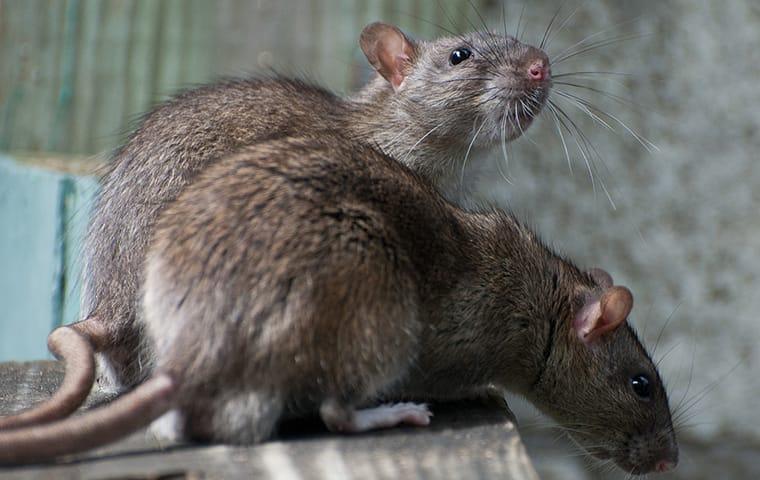It can get cold here in Portland, especially in the winter, driving both people and rodents to seek shelter in warm places. The only problem is, both have their eyes set on the same location, houses, and as you know, we have first dibs. We build them, we keep the fires burning, and we fill the pantries with food. Rodents do not contribute; therefore, they have no right sharing our living space with us. The only problem is, they don’t ask for our permission, but instead break-in, chewing holes through our walls, stealing food from our cabinets, and generally causing trouble.

If rodents have managed to find their way into your home and you’re not sure if they’re rats or mice, we are here to help you find out.
How To Tell Mice Apart From Rats
Mice and rats are similar in many ways. They can both have tan, brown, black, or even white fur. They both have sharp teeth that can chew through tough objects, and they both have a knack for invading buildings. What sets them apart is their size. Mice are much smaller than rats and generally have pointier noses and bigger ears in comparison to their bodies.
There is, however, one species of rat, called the roof rat, that is very often mistaken for a mouse. This rat is one of the smallest pest rats in America and has a much pointier nose, much like that of a mouse. Still, roof rats are twice the size of the average house mouse. The general rule is, if it is longer with a large rump, it is a rat; if it is shorter, almost like a squished ball, its a mouse.
One thing you should know about roof rats and mice is that they are both fantastic climbers. Just like squirrels, they can climb up trees and use branches to gain access to points higher up on your house. If there are holes in your soffits or gaps in your roof lines, roof rats and mice will be able to get into your attic. From there, they can get into wall and ceiling voids and travel throughout your home.
Are All Rodents Dangerous?
In truth, it does not matter which type of rodent has invaded your home; they can all cause the same problems. Some say that rats are more dangerous and destructive due to their larger size and stronger teeth, while others argue that mice cause more issues because they are the most common rodent invaders and they are prolific breeders. The reality is, they are both a big problem.
One big problem rodents cause is the spread of disease. They do this through their excrement and with the bacteria they carry on their fur. Some of the most common diseases rodents can transmit include hantavirus, lymphocytic, choriomeningitis, and tularemia.
Another problem with rodents is that they can chew through practically anything with their sharp front incisors. You may not know this, but rodents can use these teeth to sever wires and gnaw through utility piping within wall voids, leading to water damage or even fires.
Finally, rodents are common culprits for transporting fleas, ticks, and mites into homes. These small parasitic pests can be transferred onto your household pets and they bring with them their own list of dangerous diseases, such as Lyme disease and plague.
How You Can Get Rid Of Rodents
The problem most people face when dealing with rodents is using traps when the infestation is too large. Although you may find dead rodents regularly, with a population of just four rodents, you may never catch them all. Keep in mind that they breed fast.
What you can do is trust the professionals here at Kanga Pest Control. We have methods designed to deal with rodent infestations of all sizes and the tools needed for the job. No wasted money on store-bought pest control or unneeded stress over lackluster results, just a solution you can count on.
If you want to learn more about how we treat for rodents or would like to schedule emergency services for your Portland home, give us a call today.
